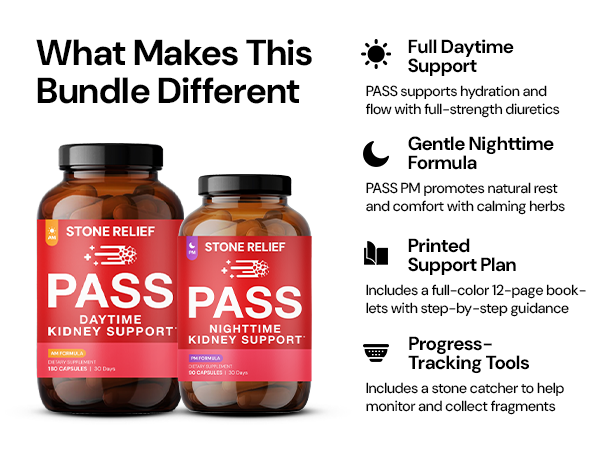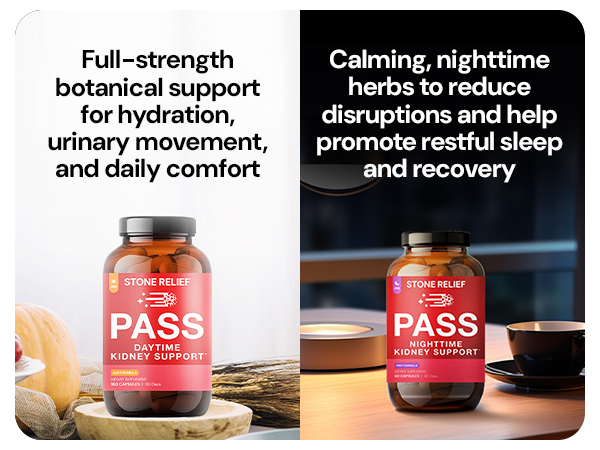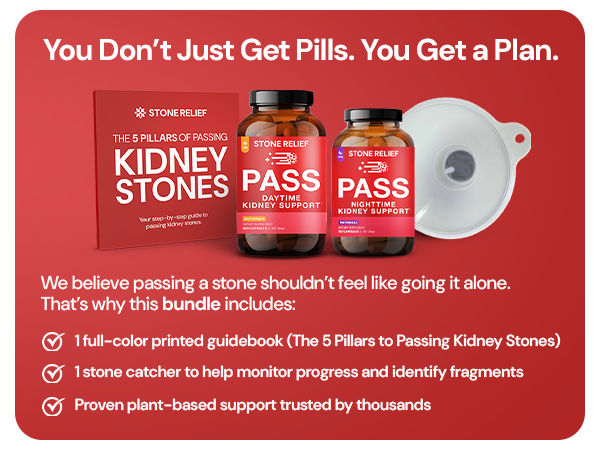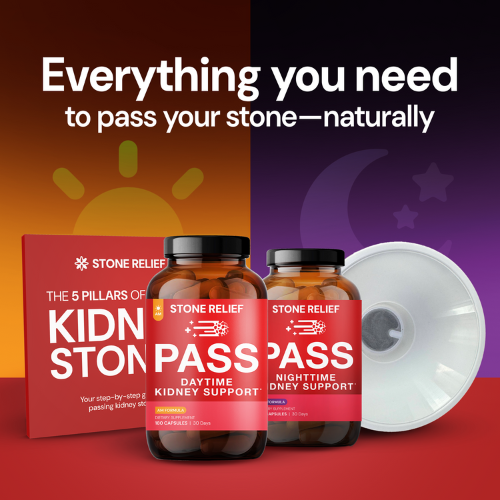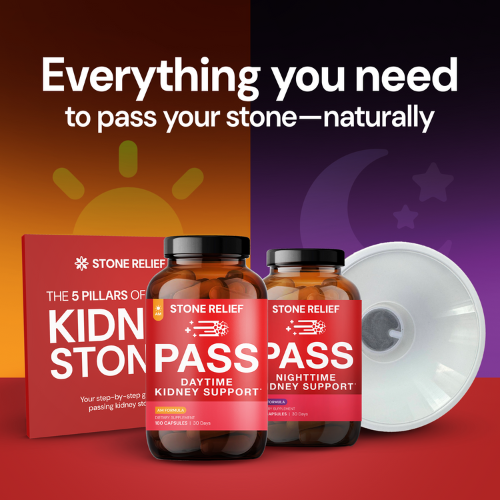How Diet Impacts Kidney Stone Formation
Your diet plays a massive role in kidney stone formation. The types of foods you eat, especially those high in oxalates, can quietly trigger stones without you even realizing it. Learn how to identify and adjust your diet to avoid future pain and frustration.
Key Takeaways:
-
Oxalates from plant-based foods are a major cause of calcium oxalate kidney stones.
-
Hydration is crucial to prevent crystal formation in the kidneys.
-
High-oxalate foods like spinach, almonds, and chocolate dramatically increase stone risk.
-
Tracking your diet can help uncover hidden contributors to kidney stone formation.
When it comes to kidney stones, your diet is a major player — far more than many people realize. Diana’s recent experience sheds light on how simple dietary habits can quietly cause stones to form over time without warning.
One of the biggest culprits? Oxalates. Oxalates are plant defense chemicals that exist in varying degrees across fruits, vegetables, nuts, and seeds. In people prone to stones, these oxalates can accumulate in the blood and then the kidneys, binding with calcium to form the dreaded calcium oxalate kidney stones.
🛒 Check Price & Purchase Stone Relief Pass AM/PM Bundle on Amazon
Hydration matters too.
Low urine volume means waste products and ions have more time to bind and form crystals. Without enough water flushing the kidneys throughout the day, super saturation occurs — a condition where excess waste products start to cluster and crystallize. Super saturation is one of the major triggers for stone formation in the first place.
When Diana switched to a paleo-style diet rich in spinach, arugula, and other high-oxalate greens, she thought she was making a healthy choice. After all, spinach has always been praised for its health benefits. But for people with a predisposition to stones, high-oxalate foods like spinach can be a nightmare.
Here's why:
Oxalates are cumulative.
Eating a small amount daily might seem harmless, but the body cannot efficiently eliminate oxalates as quickly as they build up. Even modest amounts from foods like dark chocolate, almonds, or mixed greens can lead to a significant oxalate load in the kidneys over time.
Tracking Diana’s typical meals revealed that she was unknowingly exceeding the daily recommended oxalate intake. Even foods that seem innocent — like granola bars, cream of wheat, or a banana — can push oxalate levels up when combined with other hidden sources throughout the day.
🛒 Check Price & Purchase Stone Relief Pass AM/PM Bundle on Amazon
Another key insight: animal products like meat and dairy contain no oxalates.
Unlike plant-based foods, animal-based foods do not contribute to oxalate build-up. Meats like chicken, beef, and fish, along with dairy products like cheese, can be safe staples for stone-formers.
But doesn’t eating meat cause kidney stones?
Contrary to popular belief, there is no strong evidence that meat alone causes stones. Much of the traditional dietary advice handed out by doctors is based on outdated, misinterpreted research using epidemiological studies that cannot prove cause and effect.
In fact, many people like Diana and others have found that shifting away from high-oxalate plants and toward an animal-based diet completely stops the formation of stones. Joey’s personal experience reflects this: after struggling with frequent stones on plant-rich diets, a switch to a carnivore-style eating plan led to zero new stones over two and a half years.
So, what can you do if you're suffering from stones?
First, track your diet.
Spend one to two weeks writing down everything you eat and drink. Then calculate your oxalate intake using a reliable oxalate guide. Most people are shocked to discover how quickly oxalates can add up, even in small portions.
Second, focus on hydration.
Aim for at least three liters of water per day, spread consistently throughout your waking hours. Frequent, steady urination helps flush ions and prevent crystal formation.
Third, limit or eliminate high-oxalate foods.
Foods like spinach, almonds, dark chocolate, and even certain fruits can be dangerous for stone-formers. If cutting them entirely feels daunting, work toward drastically reducing them and pairing any moderate oxalate intake with calcium-rich foods (from dairy or meat sources) to help bind oxalates in the gut before they reach the kidneys.
Finally, rethink fiber and plant foods.
Although fiber has been praised for gut health, studies show that fiber has no real impact on bowel movement quality, and eliminating unnecessary fiber often resolves constipation and bloating — symptoms many stone-formers also experience.
In truth, our bodies are better adapted to an animal-based diet than the mainstream plant-heavy recommendations suggest. High-stomach acidity and nutrient absorption patterns support this.
🛒 Check Price & Purchase Stone Relief Pass AM/PM Bundle on Amazon
Bottom line:
If you're serious about preventing kidney stones, fix your diet first. Supplements and medications can help in the short term, but addressing the root cause through what you eat will give you the greatest long-term protection.
Start with small changes. Track your oxalate intake, improve hydration, minimize plant toxins, and watch how quickly your kidney health improves.
Your kidneys — and your future self — will thank you.

